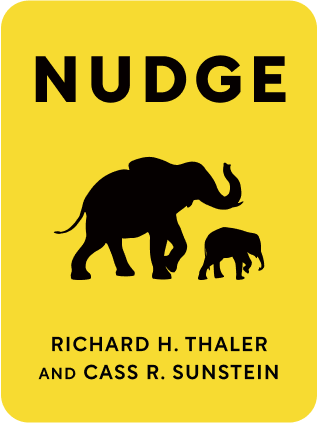

This article is an excerpt from the Shortform summary of "Nudge" by Richard H. Thaler and Cass R. Sunstein. Shortform has the world's best summaries of books you should be reading.
Like this article? Sign up for a free trial here .
What are some strategies for self-control? What is the difference between internal and external self-control?
Strategies for self-control are tactics used to encourage better behavior or restrain yourself from bad habits. Strategies for self-control may be imposed by you or by others on you.
Keep reading to learn about internal and external strategies for self-control.
External Strategies for Self-Control
Coextensive with our two systems of thinking, the Automatic and the Reflective, are two discrete selves: a “Planner,” who attempts to organize our lives rationally so that we avoid temptation, and a “Doer,” who’s easily swayed by momentary feelings and desires.
Although Planners can be quite effective at restraining Doers—by buying smaller packages of sweets, say, or placing the alarm clock where a Doer can’t hit the Snooze button—sometimes they need help from external sources.
Informal Bets
One of the strategies for self-control a Planner might employ is to use financial incentives to encourage a preferred behavior.
For example, two economists in graduate school discovered they were putting on weight and decided to make a bet: If either one of them failed to lose 30 pounds over the next nine months, the one who failed would pay the other $10,000. Both met their target weight.
Government Intervention
When it comes to life-threatening temptations—smoking, drug use, drunk driving—people susceptible to those temptations may want the government to help them control themselves.
There are many levers a government can use to rein in dangerous behaviors. So-called “Sin” taxes, for example, on items like cigarettes and alcohol, are one; outright bans, like those on recreational drugs, are another.
Market Methods
The private sector too can benefit Planners in their battle against Doers.
One example is the Christmas Club savings account, which saves Doers from not having enough money for Christmas giving. Depositors open the account around Thanksgiving and commit themselves to small weekly deposits throughout the year. The money can only be withdrawn the following year at Christmas time, thereby guaranteeing the depositor a pool of funds for buying gifts or donating to charity.
(Of course, the private sector is as happy to enable Doers as help Planners. While banks offer Christmas Clubs to help Planners save, they also offer credit cards at high interest rates, which can really get an impulse-buying Doer into trouble.)
Internal Strategies for Self-Control
While some Planners lean on external methods to help keep their Doers in check, others adopt internal strategies. A primary example of an internal method of self-control is “mental accounting”—the process whereby individuals or households designate funds for particular uses.
Mental Accounting
Economists conceptualize money as “fungible”—that is, useful for a variety of consumption activities. But, through mental accounting, the Planner part of our personality curtails money’s fungibility—it earmarks specific amounts for specific purposes. Mental accounting strategies for self-control will be familiar to anyone who has looked at their monthly paycheck and mentally deducted their recurring expenses—rent, credit-card payments—to see if they can afford the new device they’ve been coveting.
The problem is that we’re not all equally adept at violating money’s fungibility. To take an extreme case, a compulsive gambler will see his or her “rent” funds as perfectly usable at a casino.

———End of Preview———
Like what you just read? Read the rest of the world's best summary of Richard H. Thaler and Cass R. Sunstein's "Nudge" at Shortform .
Here's what you'll find in our full Nudge summary :
- Why subtle changes, like switching the order of two choices, can dramatically change your response
- How to increase the organ donation rate by over 50% through one simple change
- The best way for society to balance individual freedom with social welfare






